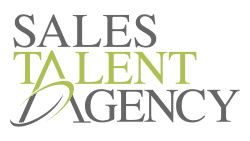
Have you landed an interview with a great company? Congratulations, but the work has just begun! If you really want this job, you need to ensure that you have done everything possible to prepare for your interview. After all, failing to prepare is preparing to fail. Check out our interview guide below to help you get ready for every step of the process:
Preparation
Do your research
Get a feel for the companies products & services, culture, and their value proposition. Although they are assessing you for the role, you should also be assessing the opportunity to ensure that it is the right fit for you. Use online sources such as their Google and Glassdoor reviews, Yelp and LinkedIn to learn more about the company including their employees, their structure and the type of messaging and information they share. You should also do research on the industry they are in as well as their competitors and how they position themselves towards their customers.
Ask your Sales Talent Agent why they recommend you
This will help you understand why they think you are a good fit for the role and what the client has asked them for. Make sure you also ask what “red flags” they have about you that may put off their client (e.g. gaps in your resume that you have not adequately explained).
Create a list of reasons why you feel you are a great fit for this specific role
This is your time to brag about your past experience. Be prepared to discuss a few success stories and a great way to describe them is by using the SAR method. This allows you to provide a full summary of each story by presenting the situation you were in, the action you took and why, followed by the results of your actions. Lastly, it is also a good idea to personally note the reasons why you may not be the “ideal” candidate and prepare to overcome those objections if they are raised.
Know your performance metrics
Past performance is a predictor of future performance. Be prepared to discuss your sales targets/quotas in previous roles. What percentage of quota did you hit? What percentage of these sales were net-new business? How did you rank compared to other sales reps in the same role? Were you responsible for sourcing your own leads? If you have any documentation of your sales performance or any positive letters from your clients or superiors, bring these to your interview.
Prepare 5 appropriate questions that you want to ask
IMPORTANT: know the difference between an appropriate question (e.g. What are some of the challenges a person will face in their first 6 months in this role?) and an inappropriate question (e.g. How many sick days do I get?)
Timing
Make sure you know the time, location and details of your interview
Traffic is never a good excuse, ensure to arrive at the location 15 minutes before your interview is set to begin. If your interviewer is running late, use this time to try and find out more about the company. Read the magazines/internal newsletters in the reception area; watch how people within the company engage with you and each other; engage politely with the reception staff and stay off your phone.
Nerves
It’s okay to be nervous
In fact, you should be nervous. If you are too confident, you likely are not well prepared and are taking this opportunity or the interviewer too lightly. The more you prepare, the less nervous you will be. Take some deep breaths, keep a smile on your face, and don’t let the nerves overpower you.
In the Interview
Treat an interview like you would treat the first meeting with a new prospect
In other words, remember that you are selling and that the interviewer is buying. In later stages of the interview process, once the employer has decided that you could be a valuable contributor to their company, you can start buying and let them sell the company, culture, and opportunity to you.
You should be engaging and polite at all times
Listen to the interviewer’s questions and ensure you have adequately answered them. Don’t be afraid to briefly pause and plan your response before answering.
Be mindful of interviews that seem really casual and friendly
It’s often a trap to see how in control you are of the sales process. Remember, your goal is to move forward to the next round of the interview process. Be friendly, build rapport, but make sure you stay focused. Always remain professional, never use slang or curse words no matter how casual your interviewer is.
Closing the Interview
Recognize when your interviewer is trying to wrap up the interview
Don’t overstay your welcome. Ask for their business card on the way out so that you have their contact info.
Ask if there are any concerns regarding your candidacy
A great question to ask is whether or not there is anything about you that may prevent them from moving you on to the next step. This shows that you are treating the interaction as a sales function and will give you an opportunity to overcome any objection.
Ensure you are moving to the next step
All strong salespeople secure a next step. A great way to do this would be to thank the interviewer for their time, reiterate your strongest attributes for the role and close by asking for the sale!
Post Interview
Call your Sales Talent Agent after the interview
Let them know how you feel it went and this will trigger them to get additional feedback from the interviewer. The client often wants to see that you have shared feedback with your recruiter. This is also an opportunity for you to address anything that you may not have clarified in the interview.
Send a follow-up email to your interviewer(s)
This is a crucial step that can significantly help you stand out from the other candidates. Make sure your email is short and sweet and that you triple check for any spelling or grammatical errors before sending. Once again, you want to treat this like a sales function. Indicate in your email when you will follow-up if you do not hear back. For more info on how to send the perfect follow-up email, read this article for the best tips.
